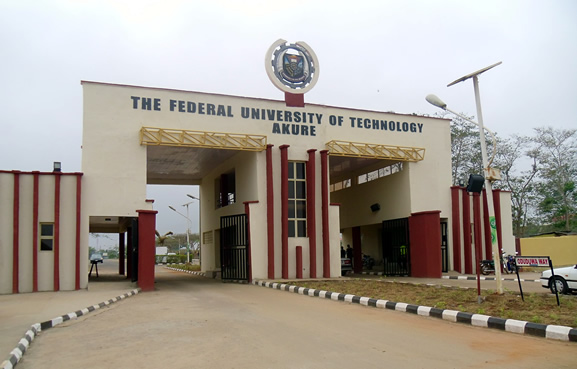Some experts on Wednesday, December 16, 2020 highlighted the economic benefits of wastes generated from wood and plastic, which they said that entrepreneurs could tap into to create wealth.

They spoke at a workshop sponsored by the Tertiary Education Trust Fund (TETfund) and organised by a team of research partners from academic institutions and research institutes in Nigeria.
The workshop, held at the Federal University of Technology, Akure (FUTA) in Ondo State, had as its theme: “Production of Value-Added Composites from Municipal Wood and Plastic Wastes”.
It was convened by Prof. Amos Oluyege, a Wood Science and Product Technology Specialist from the Department of Forestry and Wood Technology, FUTA.
Prof. Ade Onilude of the Department of Wood Products Engineering, University of Ibadan, spoke on the topic: “Entrepreneurship and Business Spin-off Potentials in Wood and Plastic Wastes Industry- Matters Arising”.
He said that raw materials were abundant in Nigeria which entrepreneurs could tap into to create wealth.
Onilude urged entrepreneurs to focus on three key areas: waste collection, waste processing and making of novel products.
According to him, Nigeria generates 5.2 million tons of wood wastes per year out of the 18.1 million generated globally from sawdust, off cuts, shavings, barks and others.
The don added that Nigeria was generating 2.5 million tons per year, out of 275 million tons per year generated globally from food wrappers and containers, plastic bags, beverage bottles, bottle, straws and container caps and others.
Onilude said that it was possible for anyone with entrepreneurial mind and skill, who focused on the three areas listed above, to generate wealth through waste collection vis-a-vis waste sorting, dumpster rental, curbside pickup, residential, industrial, junk yard, roll-off containers and trash compactors.
On waste processing, he listed opportunities available to include: setting up recovery facility, cottage plant for processing newspaper, paper towels, pallets, egg tray and carton, trash can and container, car bumper and others.
He explained that entrepreneurs could develop innovative ideas by combining wood and plastic wastes together to generate novel products: wood plastic composites, engineering products, plastic lumber for structural and non-structural purposes.
Onilude listed the challenges in exploring the opportunities in wastes to include negative attitudes of people toward waste recycling and proffered sensitisation programmes on media platforms and deposit and refund programmes as solutions.
He added that for entrepreneurs to overcome financial constraints, they should develop sellable ideas and business plans to seek funds from financial institutions, and appealed for financial support from government similar to what was done in the Agricultural Sector.
The professor also called for community orientation by government at all levels to address poor attitude toward locally-manufactured products, citing China as a country that was doing well because of her interest in developing products from local content.
Earlier, Prof. Joseph Fuwape, the Chairman of the workshop and the Vice-Chancellor of FUTA, said that the key justification for the research was to enhance solid waste management and mitigate deforestation.
He added that it was also to stimulate economic growth by encouraging the establishment of small and medium scale enterprise.
Fuwape said there were lots of wood sawdust and plastic wastes generated in Nigeria due to the effects of the teeming population.
“These wastes cause nuisance in the community.
“Making use of these municipal solid wastes is a right step toward waste management and minimising environmental pollution,” he said.
The Vice-Chancellor added that the efficient use of wood residue and wood waste are expected to minimise total reliance on solid lumber for building and construction, hence, serving as a great step to reduce deforestation.
On the economic implication, Prof. Fuwape said that the production of wood-based composite from municipal solid wastes (sawdust and plastic) was expected to create employment opportunity and contribute positively to the economic growth of our society.
The vice-chancellor reiterated the importance of synergy between the town and the gown, saying “university-industry collaboration requires careful management and can bring many benefits.
“Effective collaboration between university and industry will improve technological frontier, create platform for dialogue between the public and industry for development in the energy sector,” he stated.
Fuwape commended the efforts of FUTA in entrepreneurship, saying that the institution had clear-cut strategy on entrepreneurship and created university culture for same.
“The university has created incubation centres that will promote innovation and creativity.
“The university also links students with target companies and factories where they exhibit their talents and learn new skills and also engage its alumni in entrepreneurship.
“This has resulted in giving start-off grants to groups that have great project prospect, and also increased mobility between the university and industry,” Fuwape said.
In his welcome address, Prof. Amos Oluyege of FUTA said that Nigeria was and is blessed with vast natural resources, which gave rise to the emergence of wood processing industries, most especially sawmills abundantly found in South-West.
Oluyege said that due to increasing uses of plastic materials in the form of plastic sachets and bottles as containers for drinking water and plastic bags for conveying goods purchased from the market, substantial plastic wastes are generated in the country.
He was, however, concerned by the methods of disposing the wastes from the sawmill and plastics.
He said that the environmental and health problems caused by these methods of wastes disposal in Nigeria required effective waste management scheme that would enhance the utilisation of wood and plastic wastes.
Oluyege said that the knowledge from the workshop would translate into employment opportunities in the area of wood cement and wood plastic composite industry, improvement in the nation’s economy, reduction in deforestation and environmental pollution.
By Alaba-Olusola Oke
